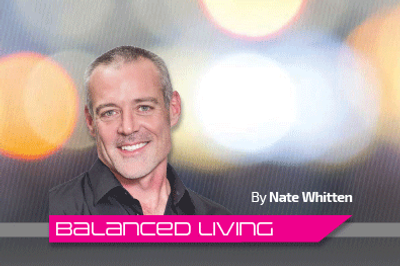

Equality is always a hot topic in the LGBT community. We demand – and deserve – equality in marriage, in the work place, in the military, in the bathroom and in anywhere there doesn’t seem to be an equitable distribution of rights and privileges.
But when it comes to your health, equality is something that will get you in trouble. I can already hear the activist lesbians grunting and see the equality-focused gay boys raising their over-tweezed eyebrow, but it’s true. Here’s why: Not everything is equal when it comes to weight, nutrition and exercise.
If you’re ready to tip the scales toward your own success in health and fitness, and eliminate the over-working or under-eating that have yielded no results at all, you’ll have to embrace the inequalities that come with the territory.
Here are four areas where it’s best to give up on equality:
1. Not All Calories Are Created Equal
Everyone needs to consume enough calories each day to provide the energy required to perform daily tasks. It doesn’t seem fair that 100 calories from vegetables and 100 calories from sugar shouldn’t produce the same results, does it?
Calories consumed from processed sugars and foods move through the system too fast to metabolize correctly. And, instead of becoming fuel that stays with the body longer, it turns into stored energy called fat.
The digestive system is able to process
calories from organic, natural and raw foods in a manner that absorbs the nutrients and slowly burned off the calories as constant fuel.
Needless to say, your candy bars, fruit juices and Pop-Tarts are not in caloric equality with your apples, broccoli and water. Get over it!
2. The Difference In A Serving Size
Not everyone should be eating the same amount of calories per day. Your necessary caloric intake is dependent on your specific amount of activity and expected expenditure of energy that you are going to ask of your body.
The average male requires 1,750 calories per day and the average female just 1,250. I know, I know: It’s not fair, but it’s true.
An avid fitness junkie will need to consume more calories than the norm because they will be burning more calories than the person with the sedentary lifestyle. Again, seems like a foul, but it’s a fact.
A person trying to lose weight will need to burn more calories than they consume. No pain, no gain. That’s the way it goes.
3. Fat People Burn More Calories Than Skinny People
A person weighing 250 pounds is moving all that weight while walking, let’s say, one mile. This means they are burning more calories simply because they are moving more weight.
On the other hand, the “skinny” person is only moving, for example, 125 pounds while walking one mile. Do you get the inequality here?
The closer a person gets to their goal weight, the harder they will have to work. While it makes sense why the last 10 pounds are always the most difficult to lose, it still sucks, doesn’t it?
4. BMI: Bad Math Interpretation
Body Mass Index (BMI) is calculated by your weight, height and age. If you have 100 pounds of muscle and stand 5 feet 10 inches tall at 40 years old, you will have a higher BMI than someone with 50 pounds of muscle at the same height and age. Nothing equal here except the age and height.
The more muscle you carry, with low body fat, the more out of balance you will appear on the BMI scale. Remember, you can only control one of the numbers in the calculation: your weight.
People carrying more body fat, can appear to have a healthier BMI than their competitive weight lifting counterpart. It doesn’t seem fair, but comparing your BMI to another and striving for equality with the national average may make you fatter than you want to be.
Taking a stand for equality in political, cultural or societal advancement is admirable, and necessary. But when you’re looking to achieve your healthiest and most-desired body, forget fighting for the greater good of the entire community and start focusing on your own agenda.
Your fellow activist’s workout and nutritional habits won’t necessarily work for you, nor should they. As you focus on getting your body swimsuit-ready this summer, remember that being fair and equal will not get you the results you want.
Consult your physician to be sure your heart and joints are ready to get to work, and consult your personal trainer to get the specialized – and unequalized (I know it’s not a real word) – nutrition and workout routine just for you.
